Photographs: Mansi Thapliyal/Reuters Niharika Pandit
Eleven months after the gang rape of a paramedic student in a moving bus in Delhi, cries for safe city spaces continue to be heard, with many citizens gearing up to vote for parties who have a substantial "plan of action" to address issues of women's security.
Days after the December 16 incident, the Centre as well as the Delhi government had announced a series of measures to enhance the security of women.
Suggestions were made to make public spaces safe for women and create an "all-inclusive" movement to battle the issue. Chief Minister Sheila Dikshit had promised to bring a plan of action to ensure the safety of women in Delhi.
With polls around the corner in the national capital, several advocacy groups are of the view that the prominence given to women's security by political parties may indeed be a game changer.
Click on NEXT for more…
Women want a safer Delhi, but do politicians care?
Image: A man peeks into the police vehicle carrying four men who were sentenced to death for the fatal gang-rapePhotographs: Adnan Abidi/Reuters Niharika Pandit
"I think women's security will be a crucial issue in the upcoming Delhi elections. People are unhappy with the state of women's security in Delhi which is growing at a fast pace," says Ranjana Kumari, director of the Centre for Social Research.
"When political parties go all the way to garner votes from people, they must also be held accountable for women's security in the city. It's inaccurate to say there has been no change at all. But in the coming elections, political parties must focus on various forms of violence against women, rape is just one form," she said.
Similarly, Kalpana Vishwanathan, advisor of Jagori, called for public awakening on the issue of women's security, adding continuous push from the civil society is required to make women's security a top priority.
According to the final tally of the Delhi Election Commission, there is a 7.44 per cent increase in the total number of female voters as compared to 2012. Nearly 54 lakh women are eligible to vote in Delhi polls.
Click on NEXT for more…
Women want a safer Delhi, but do politicians care?
Image: School trophies and dolls belonging to the victim are seen on a table inside her parent's bedroomPhotographs: Mansi Thapliyal/Reuters Niharika Pandit
Subsequently, a significant section of first time women voters spoke about the failure of the political class to strike a chord with the citizenry on working towards addressing the issue of women's security. They felt the "malaise called rape" should not be treated only as an "administrative" concern.
Palak Bhatia, a localite in IIT Delhi, doesn't stay in the college premises. After the day's lectures, the final year engineering student goes back home, but there are times when she is compelled to think about whether it's a "safe" hour to return home or not.
"Many a times, while working on group projects with my batch mates, we do get late, which is when I have to stay in the hostel and not go back home. I want to live in a city where I do not fear travelling late in the night," she says, adding that women's security will be of pivotal importance while she casts her vote.
Mishika, a first year BA Economics student in Sri Ram College of Commerce, lives in a private accommodation on Rajpur road, Civil Lines and returns home from college after 7 pm.
The dim-lit Ridge road in the north campus is one of the connecting ways but she avoids taking it.
"At around 7.30 pm, I usually avoid the Ridge road. It's dark, isolated and there are many rash drivers in vehicles with tinted glasses. I fear being followed," she says.
"Certainly, there is an increase in policing but I doubt if it has been able instill fear among miscreants," she said.
Click on NEXT for more…
Women want a safer Delhi, but do politicians care?
Image: A woman participates in a protest against the Delhi gang rapePhotographs: Adnan Abidi/Reuters Niharika Pandit
Mishika, also a first-time voter further, emphasises on how political parties have not been able to clarify their agenda.
"Who we vote for and why still remains unclear. Parties must highlight their plan of action for making Delhi more secure for us," she says.
Another student, Ranjita Gogoi, said though the Delhi government does not have administrative control over police, it can do a lot in making public spaces safe.
"At least the Delhi government can light up the city properly. This could be a major step in bringing down crime. In most areas, the street lights do not function," she said.
Many professionals and young students like Gogoi and Mishika are apprehensive about what the political parties in Delhi care enough for women's security. Calling it one of the most "important" issues, voters want to see policies implemented for making safer city spaces for all.
Recently, Pravah, a city-based social justice organisation, led 'The UnManifesto' campaign where more than four hundred youth in the city voted for three vital issues which need to be addressed in the state during the upcoming assembly elections.
Women's security claimed the top spot, followed by education and mandatory voting for all with a 'none of the above' option.
Click on NEXT for more…
Women want a safer Delhi, but do politicians care?
Image: Demonstrators shout slogans as they try to cross a police barricade during a protest against the gang rapePhotographs: Adnan Abidi/Reuters Niharika Pandit
"By soliciting our participation in politics only when the elections come round the corner, political parties seek to confine us to only the representation logic of a democracy. More important is the governance aspect of politics and it is critical that the youth of this country engage with governance. Therefore, we wanted youth to voice their opinion on women's security" says Aparna Ravi, associate coordinator, 'The UnManifesto' campaign.
After the gang rape, the Delhi government had promised to overhaul the public transport system and take other measures like deploy home guards in buses plying between 11 pm to 4 am and install GPS devices on buses, autos and taxis, but none of them were implemented.
The Delhi government also proposed to install CCTV cameras on DTC buses as a security measure, but it remained merely a promise. A DTC official said the tender for CCTV cameras, to be installed in 200 DTC buses, was floated in September.
A total 1,121 rape cases were registered in various police stations in the first eight months of this year, the highest in the last 13 years.
Delhi's Minister of Women and Child Development Kiran Walia sees this rise in the number of cases as a positive sign, saying that more women are now reporting cases of sexual violence and the Delhi government has always laid emphasis on creating safer spaces for women in the city.
"Public memory is short," Walia said, adding that the Delhi government has continually made efforts to bring in new legislations to ensure women's empowerment.
Click on NEXT for more…
Women want a safer Delhi, but do politicians care?
Image: Policemen stand guard to stop protesters from marching towards ParliamentPhotographs: Adnan Abidi/Reuters Niharika Pandit
"In 2006, when I was in Delhi Commission for Women’s chairman, we brought the issue of domestic violence in the public domain with the implementation of the Domestic Violence Act. The government also proposed compensation for rape victims, established of a rape crisis cell, vans for women in emergency situations. All these measures were introduced much before the gang rape case," she said.
She is also of the opinion that for any government, security of women will be catalytic in framing laws and policies, but it may or may not be an important factor in the upcoming elections.
"I feel concerned about women's safety. People definitely took to the streets after the December 16 gang rape case but the silent movement of creating safer public spaces for women has been an ongoing battle and will continue," she says.
When asked about defunct street lights in many parts of the city, Walia accepted that many parts of Delhi are still required to be better-lit.
While assembly elections in Delhi are scheduled for December 4, commuters and city dwellers only hope that political parties will collectively work towards creating safer city spaces by implementing policies.
Click on NEXT for more…

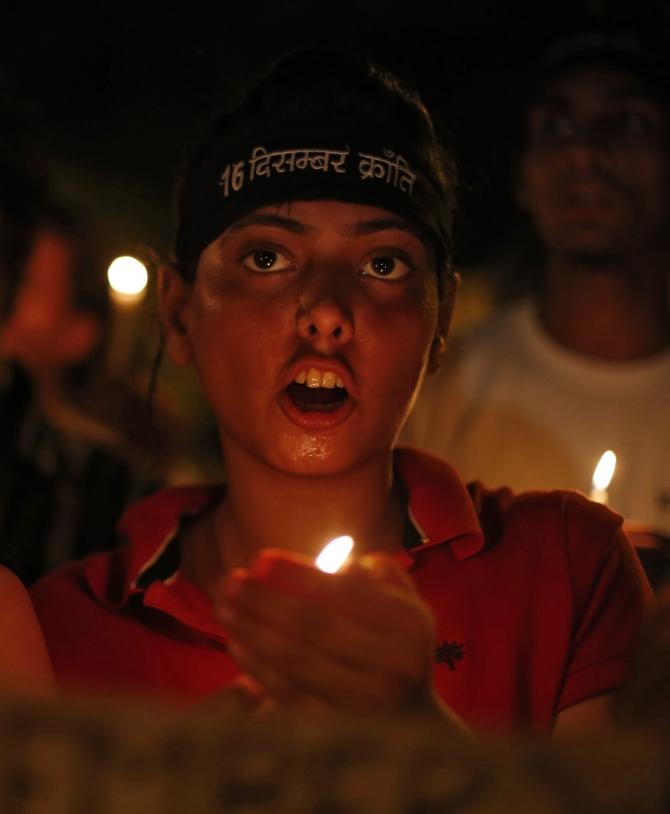
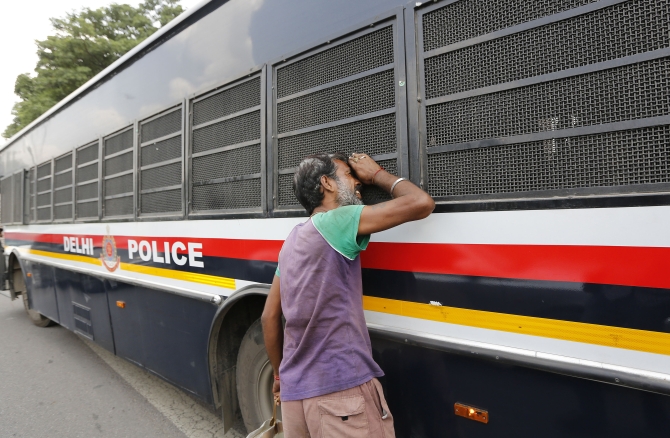
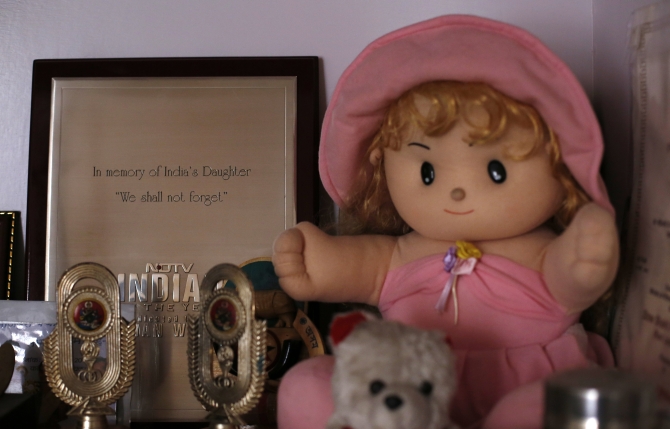
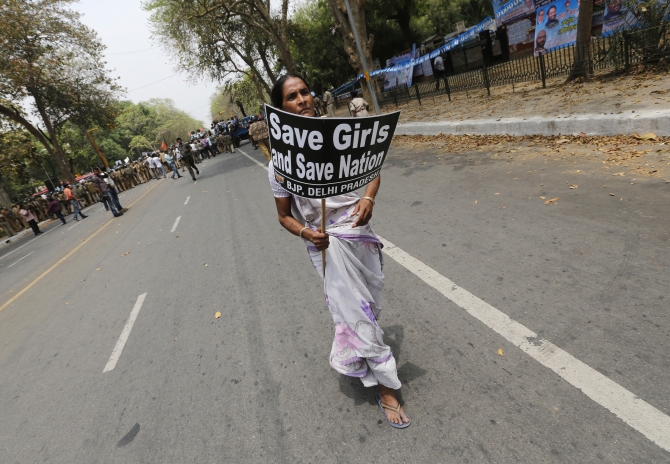
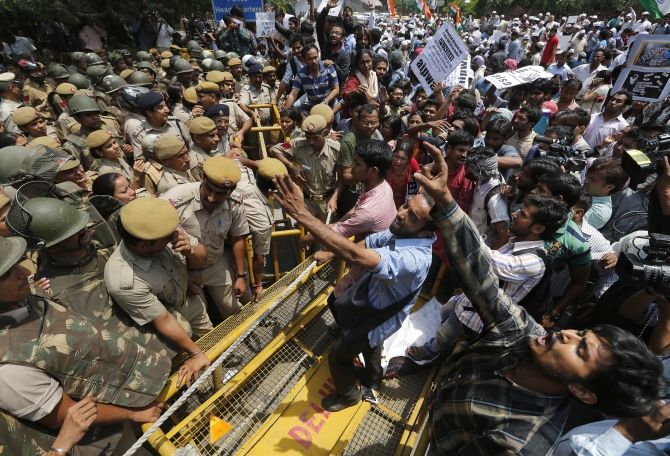
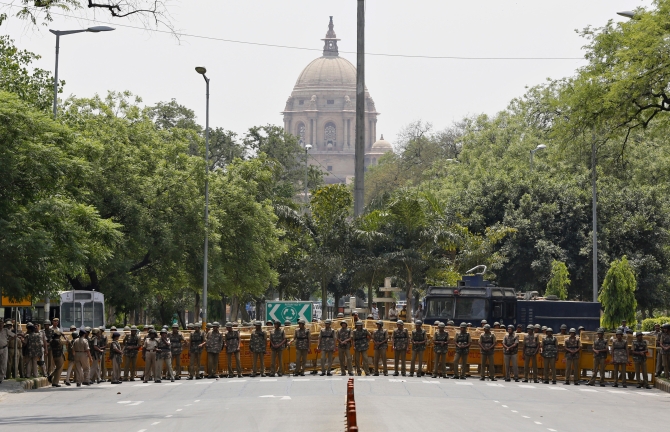
article